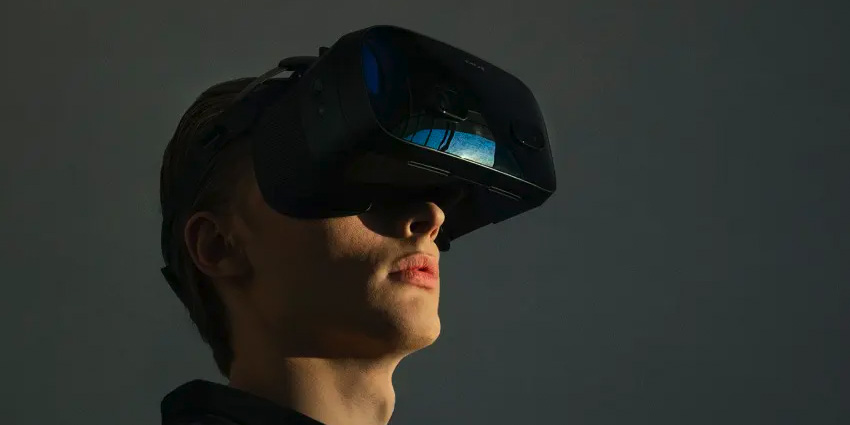There’s more to being a leading automotive company than producing some of the most attractive and powerful cars around. As brands like Mercedes-Benz know, staying ahead of the competition also means offering a phenomenal customer experience, with the right technicians on the field.
Committed to the delivery of sensational industry-leading service, Mercedes-Benz decided to empower and enhance their team members with the Microsoft HoloLens 2 MR headset.
At the same time, access to Dynamics 365 Remote Assist ensured service technicians could perform more efficiently, reducing the time required to resolve problems while minimising service-related travel.
According to Mercedes, the dealers and technicians in their ecosystem are on the front line for offering sensational service, in line with the expectations of the brand.
The challenge, however, is continuing to provide this amazing support, at a time when modern automobiles are becoming increasingly complex. Here’s how Microsoft is helping Mercedes field service technicians continue to thrive in the modern world.
Empowering Service Technicians with Microsoft
According to the Department Manager for Field Technical Services at Mercedes-Benz in the USA, a few decades ago, cars were much simpler products. The devices had only a few mechanical moving pieces to understand. However, today, everything is computerized and digital, making fixing problems more complex.
MBUS (Mercedes-Benz US) is committed to offering dealer service centers access to all the expertise required to resolve problems. However, for some time, the training process had been notoriously slow, and required field service technicians to travel to various dealerships all across the United States. For family-owned dealership, Coral Gables, a location in Florida with 50 field service technicians, delays in feedback from MBUS lead to a backlog of service orders, unhappy customers, and inefficiencies for the team.
According to the Shop Foreman at the time, Matias Scolnik, the company usually dealt with around 100 cars every day. It was a huge volume of cars to address in a small amount of space. Being able to work on a car as efficiently as possible, and fix each problem rapidly was crucial.
To solve some of the major issues affecting field service agents in the modern world, Mercedes-Benz decided to implement some of the latest technology from Microsoft.
Specifically, the company discovered the HoloLens 2 mixed reality headset and Dynamics 365 Remote Assist could accelerate the completion of tasks significantly.
A problem which might have taken days of emails and phone calls to sort out before the use of XR could be resolved within ten minutes of conversation.
A Revolution in Service Efficiency
According to Scolnik and his team, the company now saves significant time on going back and forth with MBUS experts to access answers to common service questions.
The implementation of mixed reality means the company can get cars back to their owners diagnosed and fixed in a fraction of the time it used to require. Working with Microsoft has helped Mercedes to significantly increase the quality of their customer service.
A service technician wearing a HoloLens 2 MR device can look at a Mercedes-Benz vehicle in the field and gesture at the engine to see a 3D model of the transmission next to the car.
According to a Centralized Diagnostic Technicians from Coral Gables, Edgar Campana, the technology is surprisingly easy to use. You can move content around in the mixed reality view. Plus, there’s no need to transition between different pieces of technology to access information.
The implementation of Dynamics 365 Remote Assist is also an important upgrade for the company. The solution means multiple experts from across the globe can unify on the same call to help fix problems faster. Remote experts can see everything the technician sees, send direct information to the HoloLens 2 environment, and annotate the information.
Remote experts can draw on the holograms appearing around the car, at any spot where they need to pull the attention of a service technician. This means it’s much easier to get directions on how to make changes to fix a problem from a Mercedes Benz expert. Manager of the Western USA department for the field technical services at Mercedes, Teri Clemmer, says the technology is a game-changer.
As someone with extensive experience in the service part of the automotive landscape, Clemmer believes the introduction of Remote Assist and Mixed Reality represents an important step forward for service. Microsoft is also helping Mercedes-Benz to make revolutionary steps in a range of other environments too.
For instance, the Microsoft team is making an impact on Mercedes’ carbon footprint, by reducing the travel required to deliver support to dealership service centres in the field.
Travel has been cut by up to 40%, because professionals from behind the scenes can provide support to dealers wherever they are. Experts can help dealers to get to the root cause of a potential problem without requiring any travel or transportation at all.
Looking to the Future
Pietsch says that when the Mercedes-Benz brand began researching mixed reality opportunities, they looked at a host of different vendors. Dynamics 365 Remote Assist with the extra bonus of HoloLens 2 mixed reality stood out as a clear innovator.
MBUS also saw the potential for a strong connection with Microsoft because the goals and visions of the two brands align. Just as Mercedes is committed to becoming carbon neutral by 2039, Microsoft is focused on sustainability too.
Pietsch hopes service technicians will soon reach a point where they don’t have to call for any field support at all. The technology available from Microsoft will help with this by offering both onsite support and new opportunities to train technicians in the future.
Mercedes-Benz also has additional goals in mind for the Microsoft ecosystem. The company wants to implement new mixed reality diagnostic systems, virtual reality training, sales floor support, and peer-to-peer collaboration in the future too.






